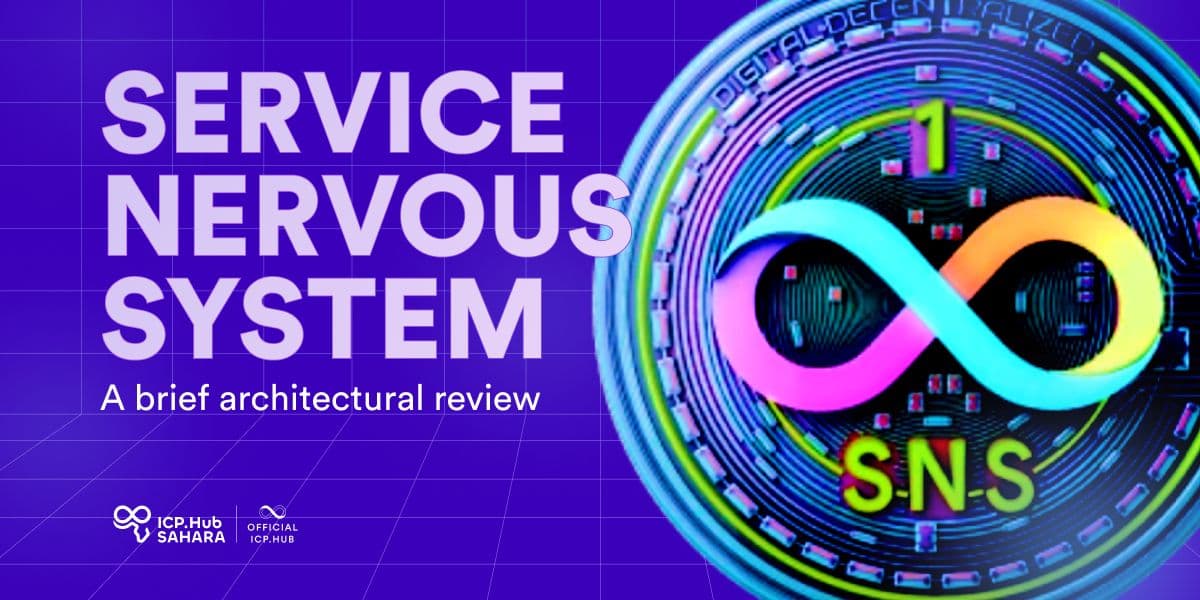
One of the many features of the Internet Computer Protocol that is constantly shaping the blockchain space is the SNS or “Service Nervous System”. This allows entrepreneurs and developers to create a decentralized and tokenized system for dapps. SNS which is somewhat similar to NNS “Network Nervous System”, which is an “open tokenized governance system” is an algorithmic DAO, that will enable developers to establish decentralized, token-based governance for their dapps.
In simple terms, let's imagine your dapp being able to run under the control of a decentralised community, with privileges like community-based fundraising and gaining censorship resistance required for advanced tokenization, that’s how SNS function.
Adopting an SNS and giving control over to a dapp, can allow anyone to acquire the dapp’s “SNS governance token”, which can be exchanged for cycles. This would also allow the distribution of the dapp’s SNS tokens to its early adopters and active users giving them a chance to stake towards the growth of the project.
How to Acquire an SNS on ICP
The Internet Computer is controlled by a single NNS, but there can be infinite service network systems (SNSs) for every dapp to govern itself. The NNS provides the ability to create utility tokens for dapp governance, which can be updated without special developer effort. Thus, all SNSs and their tokens are extensions of the NNS.
Developers can propose to the NNS to assign an SNS to their dapp to decentralize its governance. The proposal is then approved by NNS neuron holders who have staked ICP tokens within the NNS. The NNS adds the SNS to the registry, freezes the SNS ledger, and distributes governance tokens and neurons to different principals.
Initially, 1 billion governance tokens will be allocated for a dapp via SNS. The initial token distribution may include 25% to developers, 35% to an SNS-controlled account, and 40% to the public via an open auction. 90% of the initial tokens distributed via an SNS to developers and participants of an auction could be locked neurons, reinforcing governance. After completing the initial token allocation, the SNS ledger is unlocked and the SNS assumes control over the dapp. All updates are the product of community decisions, with SNS voters having the power to decide whether tokens will be given to early adopters or active users.
How to vote in an SNS DAO
SNS tokens can be locked into SNS neurons and used to create or vote on proposals. If a proposal is adopted, the code of the SNS DAO or the dapp it controls is upgraded. Users who vote may receive additional tokens for participating in governance. To get more involved, users can suggest feature updates through proposals to improve the dapp controlled by the DAO. SNS works similarly to NNS, but each DAO can configure its parameters differently. Once locked, voting may reward participants with SNS governance tokens.
Understanding the capability of the SNS protocol unlocks a world of possibilities for budding developers, enabling them to architect sophisticated applications that can thrive in the digital ecosystem.